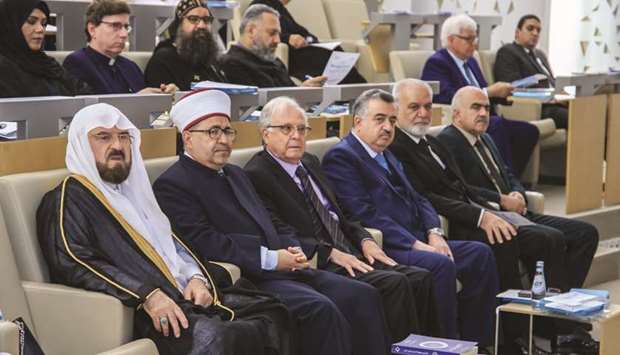The College of Islamic Studies (CIS) at Hamad Bin Khalifa University (HBKU) recently hosted a roundtable discussion on the theme of religious tolerance. Co-sponsored by the Doha International Center for Interfaith Dialogue (DICID), Religious Tolerance: A Catalyst for Peaceful Coexistence utilised case studies from across the Middle East to frame key talking points.
Consideration was also given to Qatar’s unique contribution to promoting religious tolerance and peaceful co-existence.
The first panel, beginning with DICID chairman Dr Ibrahim al-Nuaimi’s contribution, demonstrated the clear vision Qatar has to promote tolerance and co-existence at home and abroad, while Dr Hamda Hassan al-Sulaiti, secretary general, Qatar National Commission for Education, Culture and Science, highlighted the functions of Qatari cultural institutions.
Dr Rabia Sabah al-Kuwari, professor of Media at Qatar University, spoke on the role of media. Sheikh Dr Ali al-Qaradaghi expanded on the role of religion in promoting tolerance and co-existence.
The discussion featured a second panel of speakers from different faiths and perspectives to highlight the challenges and opportunities for co-existence and tolerance.
These included Dr Maher Khudair, judge at the Supreme Shari’a Court of Palestine; Omar Ahmed Karim al-Barazanchi, ambassador of Iraq; Dr Ahmed al-Qadidi, former ambassador of Tunisia to Qatar; and Paul-Gordon Chandler, senior priest at the Anglican Church of Qatar.
Proceedings concluded with a question and answer session and further contributions from the floor.
Dr Josef Waleed Meri, a historian of interfaith relations and the history of religion at CIS, who also chaired the second panel, said, “ For me this event was as much about student participation as it was about the expert speakers who contributed their time and expertise.
By pooling our knowledge and resources together we developed a roundtable which framed debates in both a historical and contemporary context.
The diversity of guest speakers also reflects a simple truth: you can’t discuss religious tolerance without seeking the perspectives of other religions.”
Dr al-Naimi referred to DICID in his speech as an institution working for interreligious and intercultural dialogue to prepare future generations with deeply rooted inter-religious and moral values, especially since the world has become a single village, and the fate of its inhabitants is intertwined and interdependent.
What happens in the east of the world resonates in the west and vice versa, crossing distances through the spread of information technology and the means of social communication through language, he said.

The roundtable aimed to highlight the challenges and opportunities for co-existence and tolerance.
